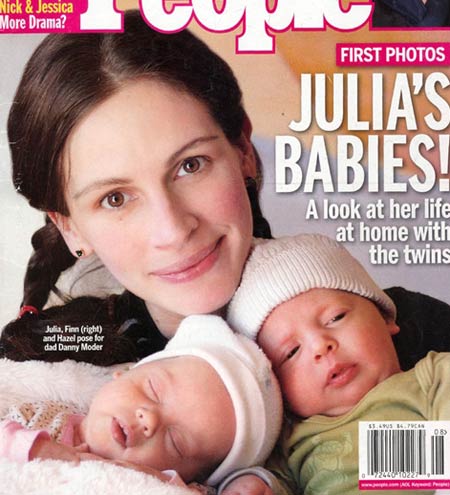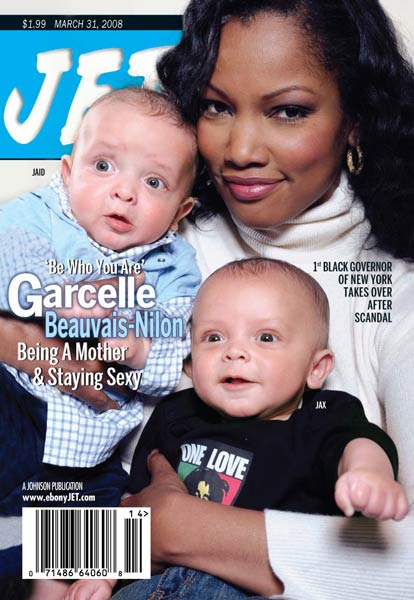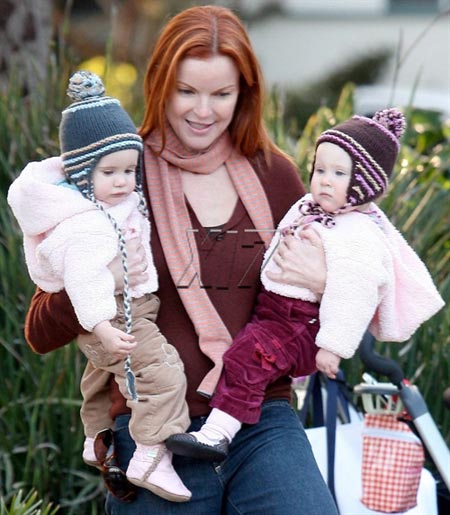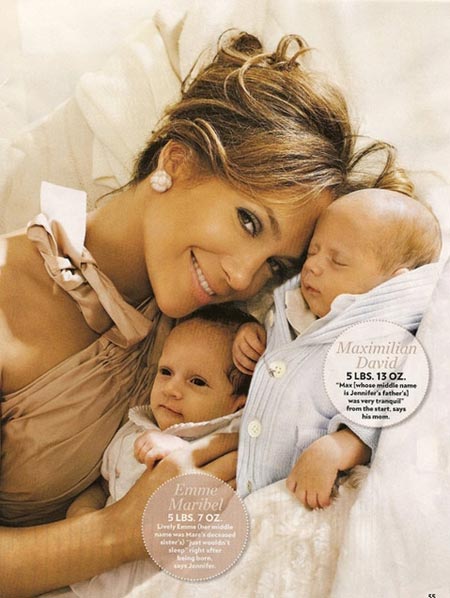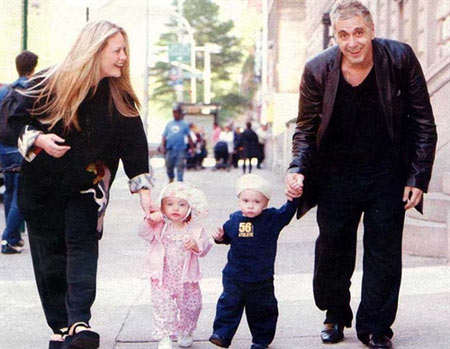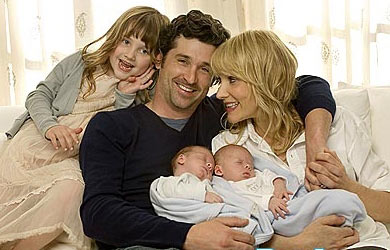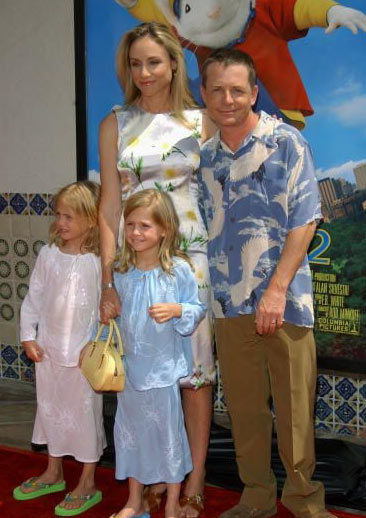BELLFLOWER, Calif. – A woman gave birth Monday to eight babies, only the second time in history octuplets have survived more than a few hours, doctors said.
The mother gave birth to six boys and two girls weighing between 1 pound, 8 ounces, and 3 pounds, 4 ounces, doctors at Kaiser Permanente Bellflower Medical Center said. The hospital had scheduled a Caesarean section for seven babies, but doctors were surprised when an eighth came out at 10:48 a.m.
"My eyes were wide," Dr. Karen Maples said, explaining her reaction to the last birth.
Doctors said the babies were born nine weeks premature but are in stable condition. Two newborns were placed on ventilators and a third needs oxygen.
Hospital officials would not release any information about the mother, including her name, condition or whether she used fertility drugs. They did, however, say she planned to breast feed all of them.
"She's a very strong woman, so she probably will be able to handle all eight babies," said Dr. Mandhir Gupta, a neo-natologist who cared for the infants.
The mother checked into the hospital in her 23rd week of pregnancy and gave birth seven weeks later. All eight babies will probably remain in the hospital for at least two months and the mother should be released in a week, Maples said.
The world's first live octuplets were born in March 1967 in Mexico City, but all the babies died within 14 hours, according to Encyclopedia Britanica.
The United States' first live octuplets were born in Houston in December 1998. They were three months premature and their weights at birth ranged from 11 ounces to 1 pound, 11 ounces. The tiniest infant died of heart and lung failure a week after being born. The surviving siblings — girls Ebuka, Gorom, Chidi, Chima and Echerem, and their brothers Ikem and Jioke — turned 10 in December.
Their mother and father, Nkem Chukwu and Iyke Louis Udobi, said they are astonished and grateful their children have grown up to be healthy and active. Chukwu is even happier to hear another mother successfully accomplished the same feat.
"It's a blessing, truly a blessing," Chukwu told The Associated Press. "We'll keep praying for them."
Forty-six hospital staff and four delivery rooms were used for the latest octuplets' births. After one baby was born, staff rushed the newborn into another room and waited for the next, the hospital said. But despite weeks of preparation, doctors did not expect the eighth child.
"It is quite easy to miss a baby when you're anticipating seven babies," said Dr. Harold Henry, chief ofmaternal and fetal medicine at the hospital. "Ultrasound doesn't show you everything."
Doctors said they repeatedly conducted practice sessions on the deliveries and were well prepared. Gupta said the woman was given spinal anesthesia and could hear the babies as they came out.
"When the first baby came out, he was crying and kicking," Gupta said. "That eased the tension in the operating room because the first one came out healthy."
Dr. Richard Paulson, director of the fertility program at the University of Southern California, said octuplets born premature could face serious health risks, including breathing problems and neurological damage. The mother also has an increased risk of hemorrhage, Paulson said.
"It's a risky decision to try to have all eight babies," said Paulson, who had no role in the delivery. "I would not recommend it under any circumstances, but I respect a parent's decision."
For people who use fertility drugs, the vast majority of births — 80 percent — are single babies. Amongmultiple births, the most common are twins, Paulson said.
Paulson said the latest births likely resulted from the use of fertility drugs and not in vitro fertilization.
"When you hear about someone having octuplets, it's almost always the case that they took fertility medications and not IVF," he said.
It's easier to control the number of births through in vitro fertilization, which involves combining egg and sperm in a lab dish and transferring the embryo into the uterus. Fertility drugs induce or enhance ovulation and couples often opt for selective reduction, in which women carrying multiple fetuses reduce the number of viable fetuses to two.
The Bellflower medical center is about 17 miles southeast of Los Angeles.
___
Associated Press writers Denise Petski and Alicia Chang in Los Angeles contributed to this report.


 本城市首頁
本城市首頁
























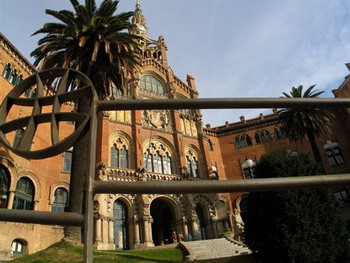


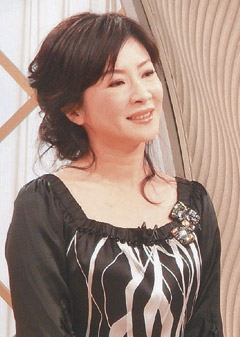


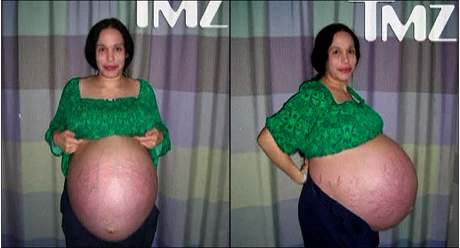



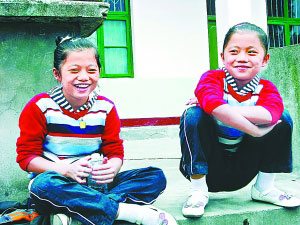
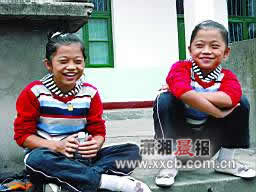

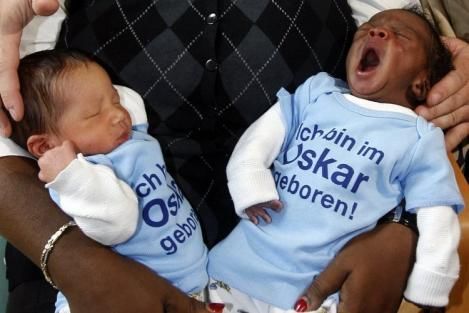

 也許妳會覺得擁有多(雙)胞胎是件多麼幸福的事,一次懷孕、生產就能解決生男、生女的問題。但是妳知道嗎?孕育多(雙)胞胎可不是件容易的事,除了天時、地利、人和外,產前檢查與單胞胎又有許多的不一樣!
也許妳會覺得擁有多(雙)胞胎是件多麼幸福的事,一次懷孕、生產就能解決生男、生女的問題。但是妳知道嗎?孕育多(雙)胞胎可不是件容易的事,除了天時、地利、人和外,產前檢查與單胞胎又有許多的不一樣!


